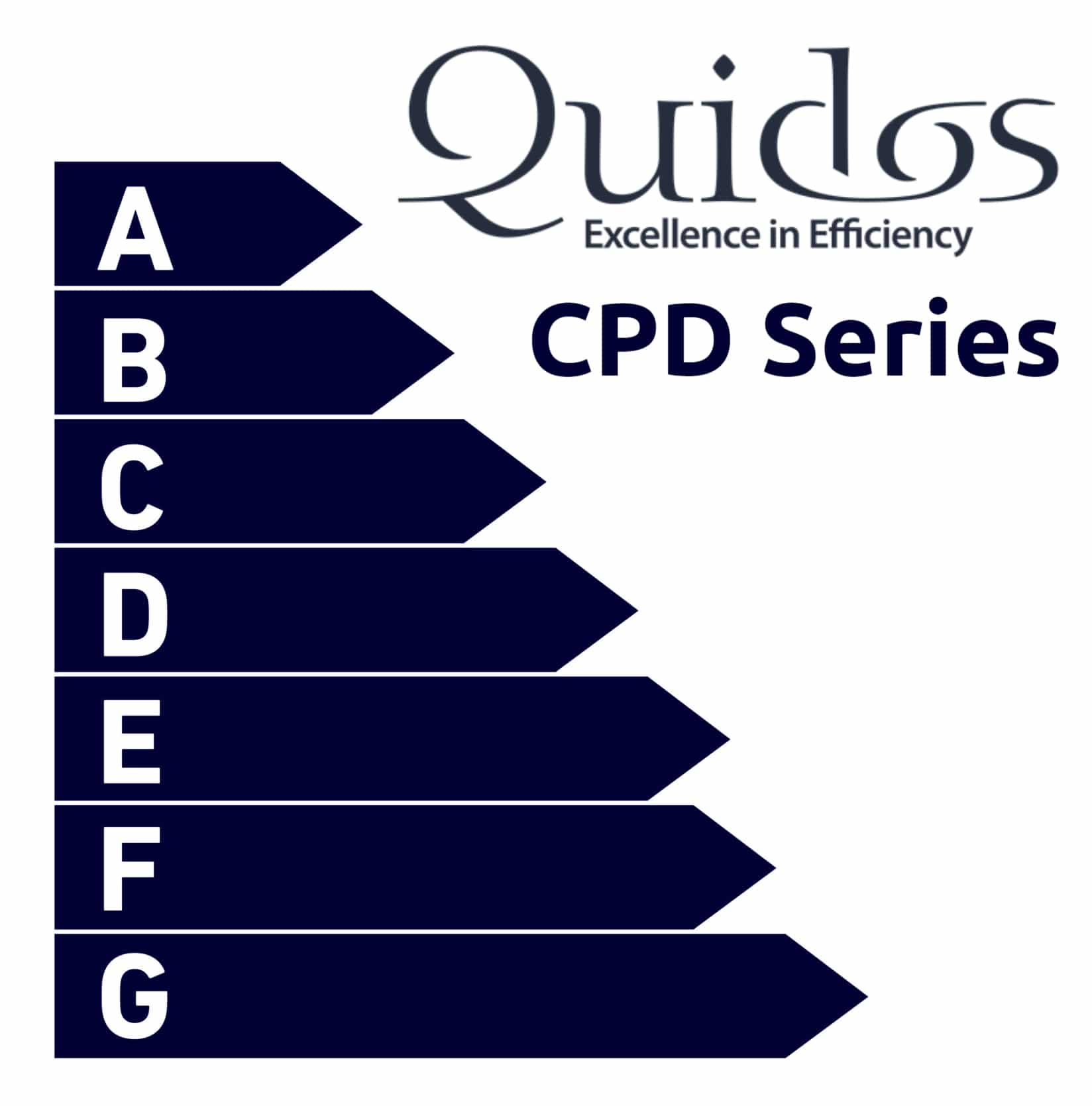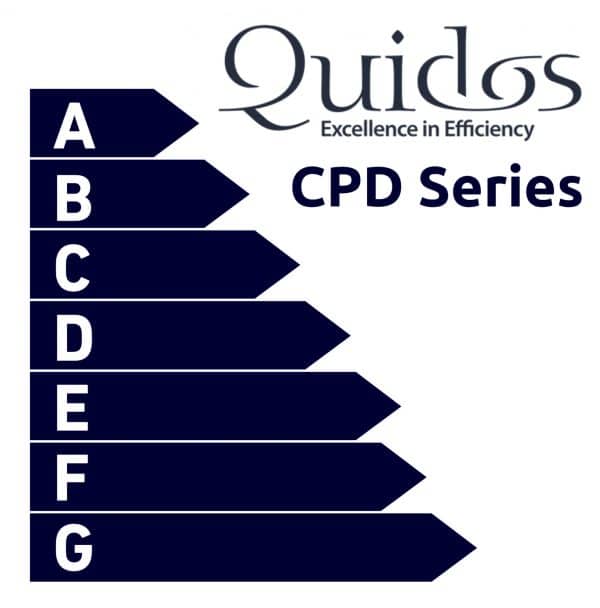Description
Quidos CPD Series: Quality
This Quidos CPD Series: Quality teaches assessors how to break down domestic properties for a DEA, provides a detailed analysis of the domestic EPC auditing process, looks at ten distinct errors often made by DEAs, teaches assessors how an auditor classifies an assessment as defective a identifies where the RdSAP Recommendations can be found.
.
Chapter one: Analyse a Domestic Dwelling (114429)
This chapter looks at how a dwelling should be broken down and divided into a main property and extension(s) for the purposes of an EPC assessment.
Ensuring that a property is correctly modelled for the purposes of the EPC process is a vital step in producing a correct EPC. Unfortunately, many assessors fall victim of the auditing process and do not enter a dwelling correctly into the software. This CPD chapter examines what constitutes an extension for the purposes of RdSAP, looks at the importance of ensuring a property is entered correctly, and looks through some of the most common mistakes and errors made by assessors.
Chapter two: How to Pass a Domestic Audit (114498)
This chapter provides useful clarification on how the domestic auditing process works from start to finish, from the point of view of both the assessor and the accreditation scheme.
Completion of this chapter will help to ensure that the assessor is fully aware of all the requirements of the auditing process, including exactly which pieces of evidence should be provided for each assessment they complete.
In addition, this chapter explores the main reasons why reports do not pass through the auditing process, and looks through the evidence requirement for the photographs, site notes floor plan and additional evidence that are required for auditing. Reduce your audit failures.
Chapter three: DEA Common Mistakes (117908)
The chief common mistakes which are featured within this chapter include incorrect selection of meter type, how boilers which are not within the database should be entered, and when annexes need separate EPCs. The chapteralso looks at how HMOs and highly glazed extensions should be handled by assessors. Completion of this chapter should help ensure that an assessor doesn’t fall foul of these common mistakes ever again.
Chapter four: How a Domestic Audit is Completed (117907)
Auditing is one of the aspects of the industry which assessors may still find a little bit of a mystery, so this chapter will give assessors a full overview of how the auditing procedure works in reality and how results are calculated the way in which they are.
The chapter firstly gives a thorough overview of the standards and procedures which an auditor is required to follow, before demonstrating how the information is accessed and the audit started. The video then goes on to show how an auditor calculates whether or not an assessment would be classified as defective, then finally shows how the feedback is provided to the assessor once the audit is completed.
Chapter five: Using RdSAP Reccomendations (120723)
Recommendations are an essential element of the EPC and with the Minimum Energy Efficiency Standards having been introduced they are taking on ever more importance in the EPC process.
As such it is vital that assessors have a firm understanding of how the recommendation process works and at what point various recommendations will be recommended.
This chapter focuses on identifying where the RdSAP Recommendations can be found, where to find the recommendations within the Specification, how to identify Recommendation selection criteria. It will also cover the important areas of determining what circumstances are needed for a particular recommendation to be shown, determining what would need to be completed to remove the recommendation, how to use the information to explain recommendations to clients and how to resolve issues relating to the EPC recommendations.
Completion of the Quidos CPD Series: Quality can be used to provide 5.5 hour’s worth of CPD towards an assessor’s annual requirement. The Quidos CPD Series: Quality is comprised of a series of presentations followed up by short multiple choice quizzes, which assessors will need to pass in order to obtain the certificate for the CPD.
Upon completion of the Quidos CPD Series: Quality and successful undertaking of the quizzes, a copy of the certificate will be provided to the assessors via the Quidos Training team
-
- 5.5 hour’s online training
- Just £119.99 + VAT
- Part of the Quidos CPD Series
- Learn how to break down domestic properties for a DEA.
- Detailed analysis of the domestic EPC auditing process.
- Avoid the ten distinct errors often made by DEAs.
- Inside knowledge on how an auditor classifies an assessment as defective.
- Receive a certificate on completion.
Please be advised that we set up online training modules for customers within the working hours of Monday-Thursday: 9am-5pm & Friday: 9am-4:30pm.
Please be aware, once purchased all training products and services are non-refundable.










